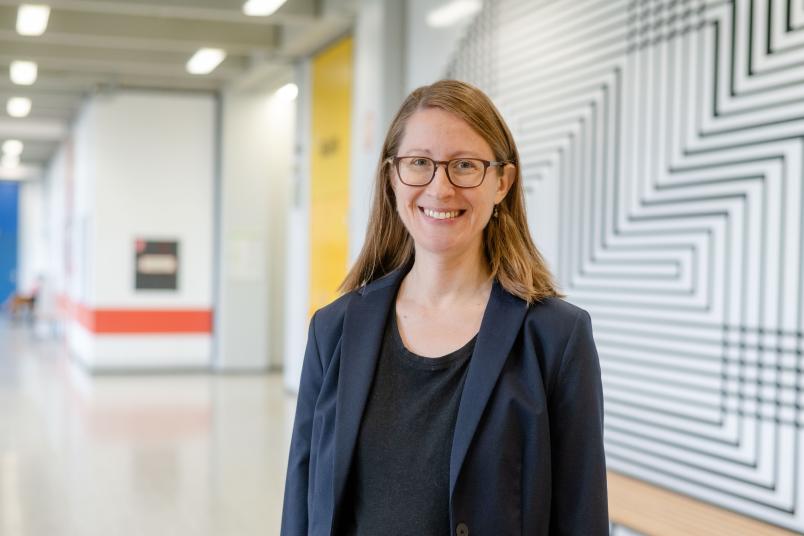
ERC Consolidator Grant
A New Look at Dark Matter
Astrophysicist Dr Elisa Pueschel wants to penetrate a still unexplored mass range of dark matter particles.
Most of the matter in the universe is dark matter. Dr. Elisa Pueschel from the Institute of Astronomy at Ruhr University Bochum, Germany, is focusing on this in her “Dark100” project: The focus is on a still unexplored mass range of dark matter particles. “By utilising novel, cost-effective telescope technology, Dark100 will deploy a series of telescopes capable of studying dark matter annihilation and improving on the sensitivity of currently operating and planned gamma-ray instruments by an order of magnitude, with unprecedented energy and angular resolution,” says Elisa Pueschel. She has been awarded a Consolidator Grant from the European Research Council (ERC) for this work, providing her with funding of 2.3 million euros for five years.
Driven by recent theoretical developments, both in tools and motivation, Dark100 will search for dark matter particles between 100 teraelectronvolt and several tens of petaelectronvolt. Dark100 will build a unique dataset of deep gamma-ray observations of dark-matter-rich astrophysical systems. “Dark matter will potentially be detected, or in the event of non-detection, limits on its velocity-weighted annihilation cross section will be set,” says Elisa Pueschel. For a non-detection, dark matter will be ruled out for part of the probed mass range and theoretical models constrained for the full probed mass range.
“I hope that the impact of Dark100 will be felt beyond the dark matter community,” says Elisa Pueschel. “By demonstrating a new gamma-ray telescope paradigm, Dark100 will enable a range of possible astrophysical studies with gamma rays above 100 teraelectronvolt, including searches for Galactic Pevatrons and transient events.” Its public data archive will encourage synergy with other gamma-ray instruments.